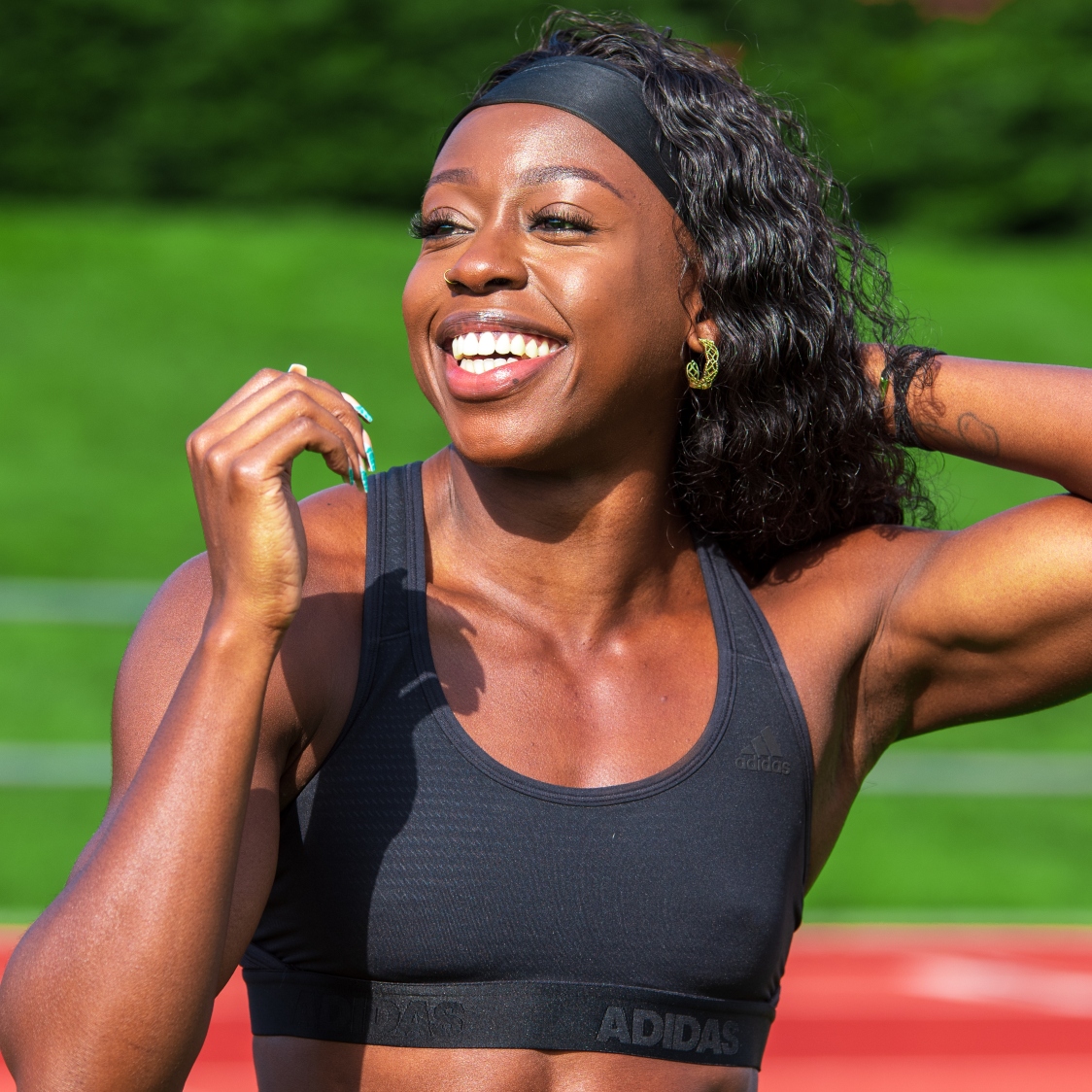
You don’t just become one of Britain’s fastest runners overnight. At 28 years old, Desirèe Henry has dedicated almost two decades to committing her mind, body and soul to the track. Missing out on birthday parties and spending all hours in the gym has certainly paid off, she tells us. Her hard work manifested into an Olympic bronze medal in the 4x100 metre relay at the 2016 Rio Games, and a silver at the World Athletics Championships. Desirèe knew her calling from a young age, but had to trial a few sports until she found the perfect fit.
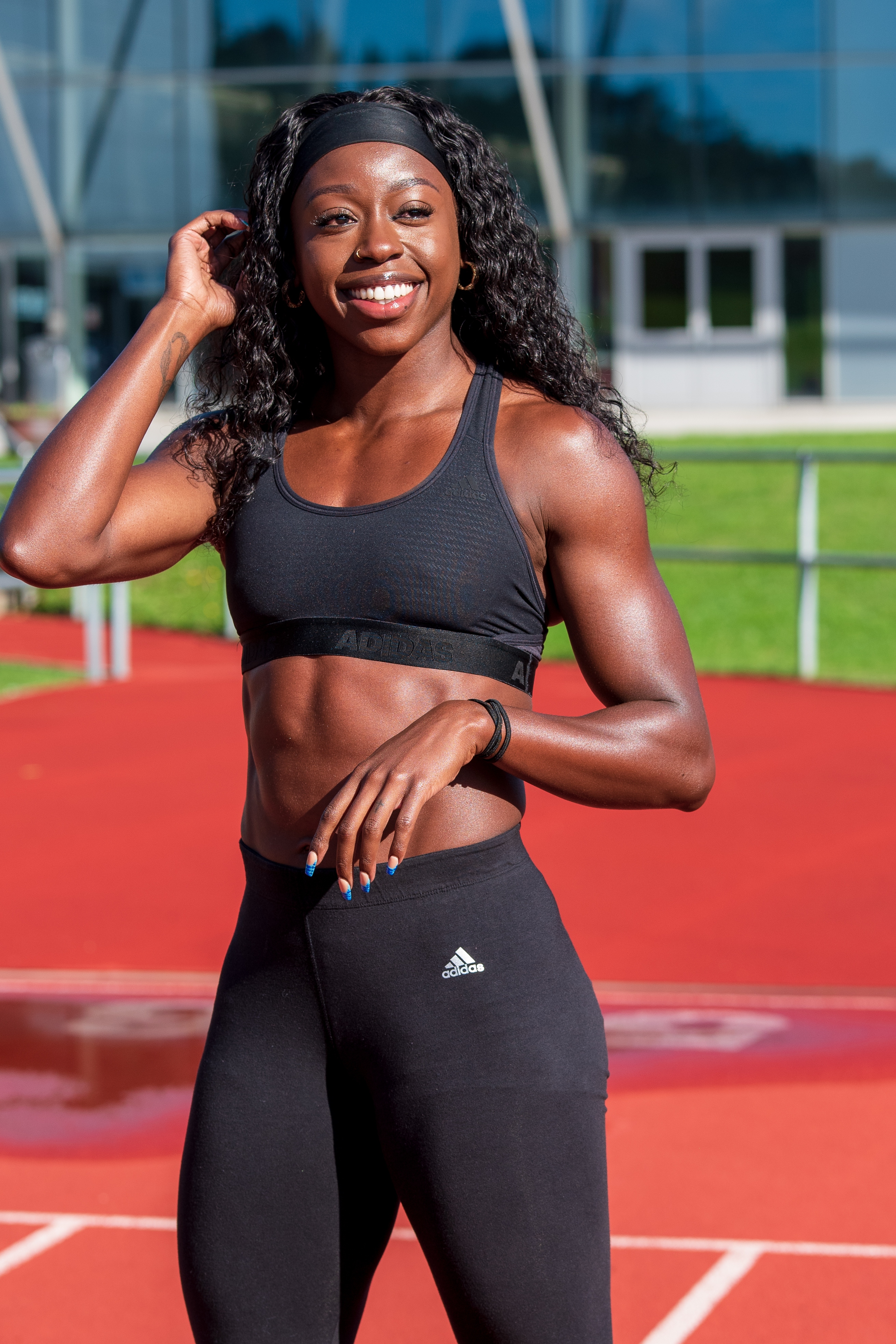
“I tried basketball, I tried football, and I just was terrible at them. The only thing that I was consistent at was being extremely fast. So I tried different events but I realised my coordination wasn’t that great when it came to hurdles, I'm not as strong as I thought I was for shot put. Then on track I just had the ability to run as fast as I could, that was me in my element. I felt completely free and I was living how I was meant to live.”
Desirèe discovered her passion, however there were, and still are hurdles in life to face. The biggest she tells us - battling the challenges of being a young black female in the world of sport. Nevertheless there were great opportunities too.
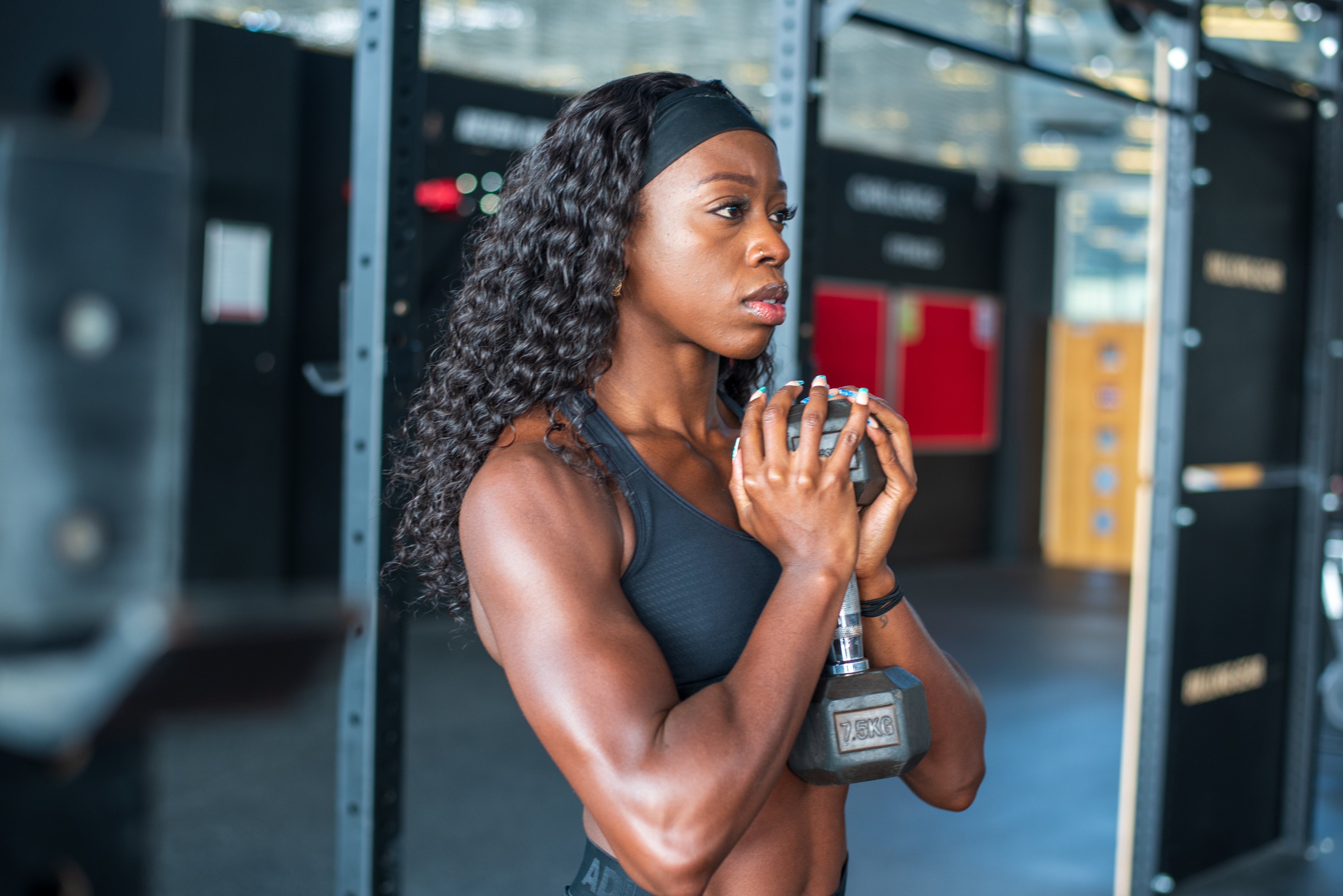
Desirèe was one of seven young people asked to help light the cauldron at the London 2012 opening ceremony, a tournament which inspired the nation. By that point she’d already competed in the World Championships, but standing in the stadium in her home city, surrounded by athletes she’d always looked up to, Desirèe felt a drive to turn her Olympic dream into a reality.
“At that moment I really took my time to look around, take in the smells, make note who was around me, see what people were wearing. The lights were flashing, people were screaming. I just knew that moment would never happen again. Being a torch bearer.”
Desirèe knew in her heart she’d be back at the Olympics someday.
“Watching people go out and represent their countries and sharing the same space with these athletes, I thought to myself they don’t know it yet, but I’m coming for you. That was the advantage of being young, there was that level of fearlessness, there was no concern I wouldn’t be back.”
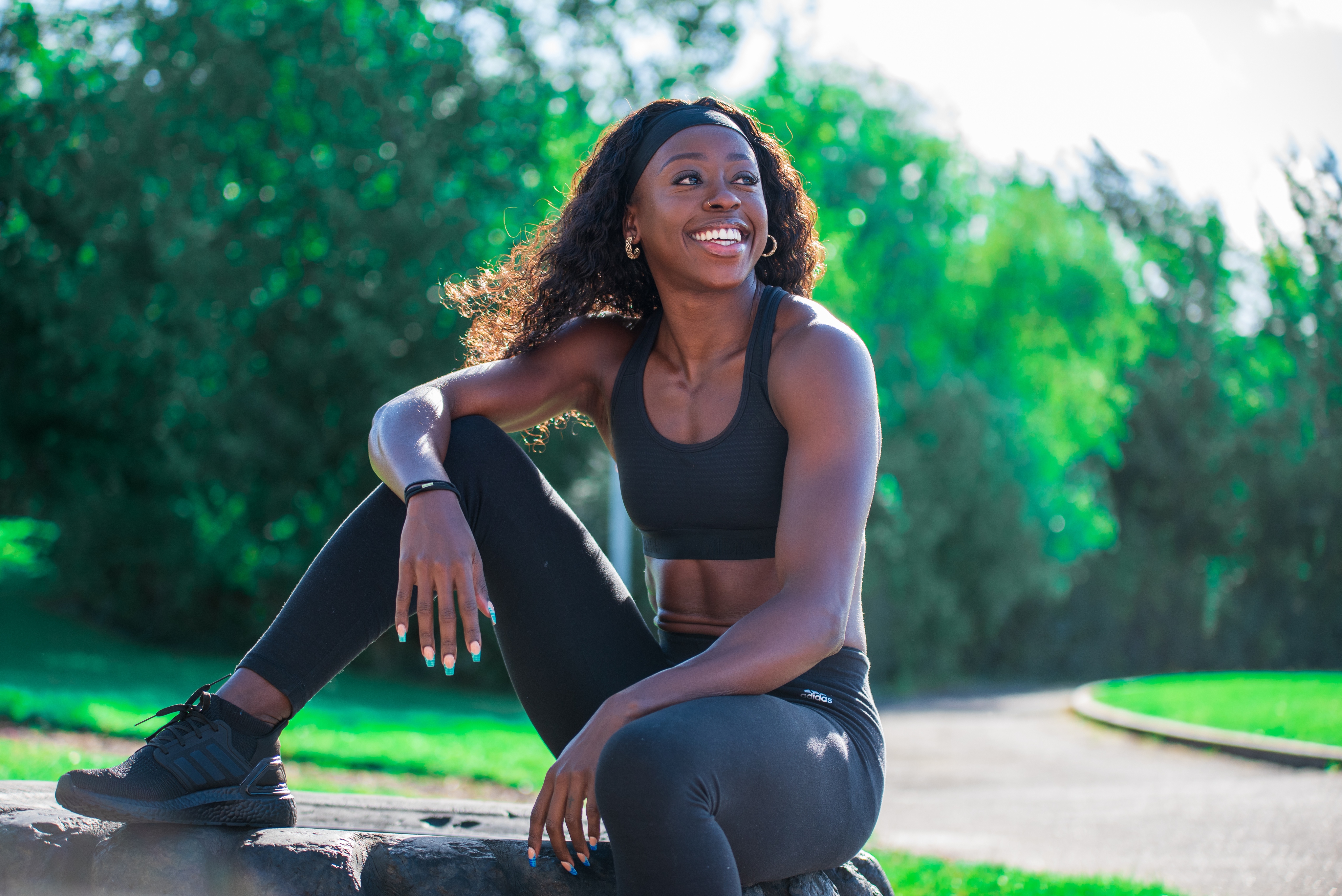
She was absolutely right and joined Team GB for the next cycle preparing for Rio 2016. But it wasn't easy. Desirèe tells Marie Claire those were the four hardest years of her life. Not because of the physical demand, it was adjusting her mindset to the cut-throat world of athletics.
“I was already that person that liked to eat, sleep, train, and repeat. But I went into a world class performance programme, training with some of the best British sprinters and athletes Great Britain has to offer. It was very intimidating because I was no longer the strongest in the room, I was the weakest. So mentally I had to grow extremely strong, I had to consistently remind myself of my talent, my God given talent.”
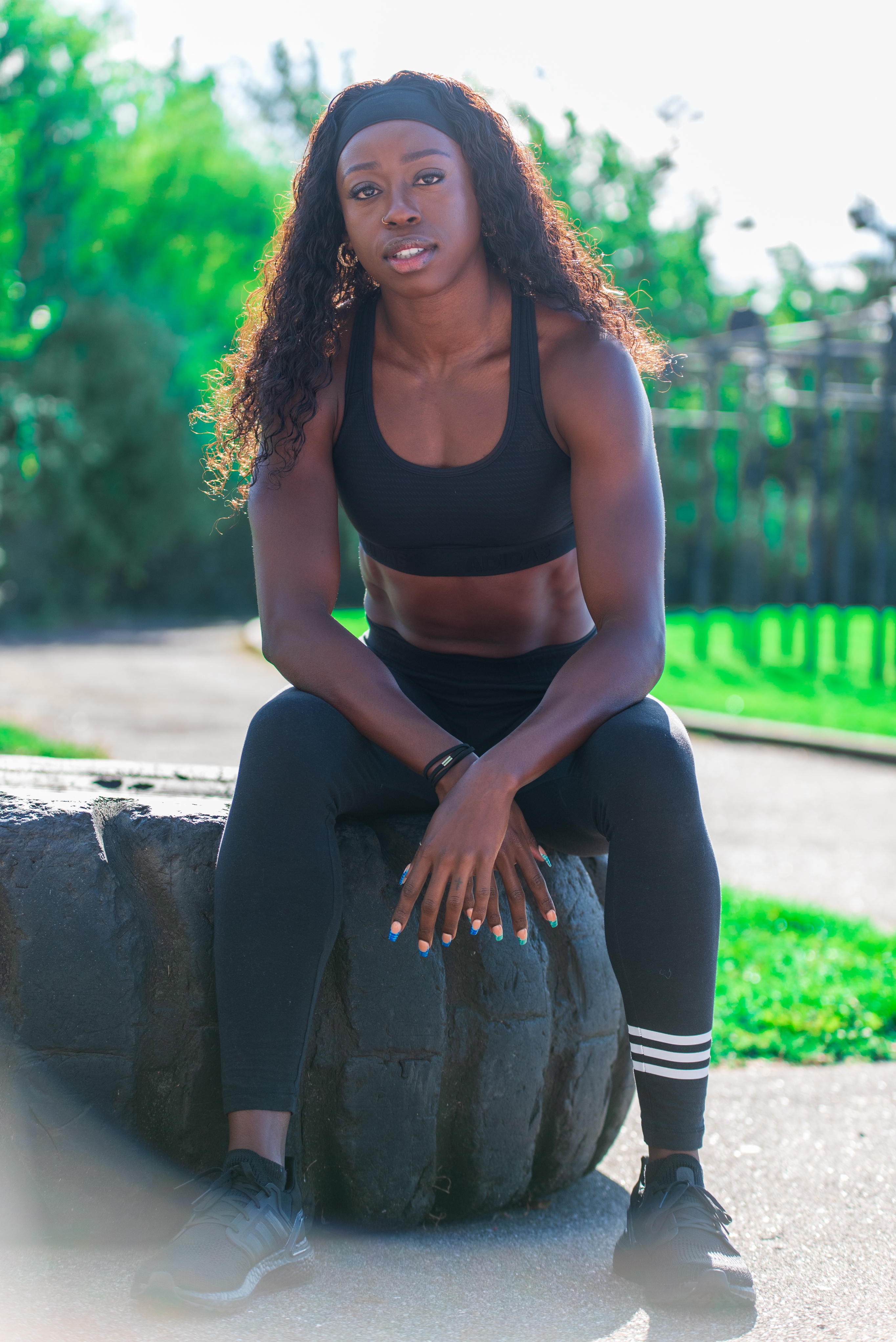
Religion continues to inspire Desirèe through life, often calling on a higher power to help her through the good and the bad times. It’s what she said led her and her teammates, Asha Phillip, Dina Asher-Smith and Daryll Neita, to that bronze medal.
“Before we went out we just said a prayer and I feel like that provided us with a little bit of confidence because we are all Christian women. Once I saw my teammate Daryll cross the line in third, and they confirmed we had become Olympic bronze medallists, I burst out crying.”
Fast forward seven years, Desirèe's success has continued to grow. No surprises considering what she manages to fit in 24 hours. Alongside training for Paris 2024, she works for an elite elevation program helping retired athletes get into new industries, presents a successful podcast, all whilst documenting her life on Instagram to 72,000 followers.
“I always thought it had to be eat, train, sleep and repeat on social media. But I felt like it was a lot of hard work pretending to be this person that doesn't go out, doesn't spend time with family, doesn’t go and see Beyonce. That's not a reflection of who I truly am, and I would say, probably this year I've had the most increase of followers, and I'm just so relieved that it's as a result of being myself.”
It does help that she has a very cute sausage dog, Henry!
Feeling her most authentic self, Desirèe shares with Marie Claire the lessons she’s learnt along the way, from navigating the sporting world as a black woman, to the importance of having a treat day every now and then, consisting of reality TV binge and a pack of chocolate digestives!
What does day-to-day life look like as an Olympic athlete?
I’m in training [for Paris 2024] at the moment so always have a high protein breakfast, plus a croissant! I have a running session from 9.30am all the way until lunchtime, so that's 3 hours of running. I then have my gym session, which is almost 2 hours. To make it easier, meal prep is a big thing for me so I’m eating right, and I have my Solgar® vitamins with every meal. I'm that person that already has a vitamins organiser! Being a professional athlete, it's so important, because that's what ultimately helps ensure that my tendons and muscles are recovering. I do some stretches in the evening, and then hop onto my laptop to schedule calls for the next day. And then finally I get to have some dinner, and go to bed very, very early to ensure that I can wake up the next day for training to do it all over again, an exciting life!
What are the challenges you’ve had to face in the world of sports as a black woman?
I’m of Antiguan and Guyanese descent. My dad lives over in Antigua and he tells everyone he meets I’ve gone to the Olympics, he’s so proud. It’s important where I’ve come from, where my parents and grandparents have come from. When I win even as a British person, it’s like multiple nations are being represented through myself. But once you travel as an athlete to other countries, you learn very quickly that racism is still very much alive. You notice the difference in how some of the black athletes are treated. Within the black community we know the phrase having to work twice as hard. It's just sadly something that's been installed in me from my parents, based on what they've been through. I'm glad they did because when things have happened, it wasn't so much of a shock. You can be a professional athlete and represent your country, do so many great things, but there are many situations that just make you feel like you're not good enough, simply because you're black. I want people to see me, and especially young girls, someone that looks like them, and think that they can achieve the best things, and can dream of being an Olympian.
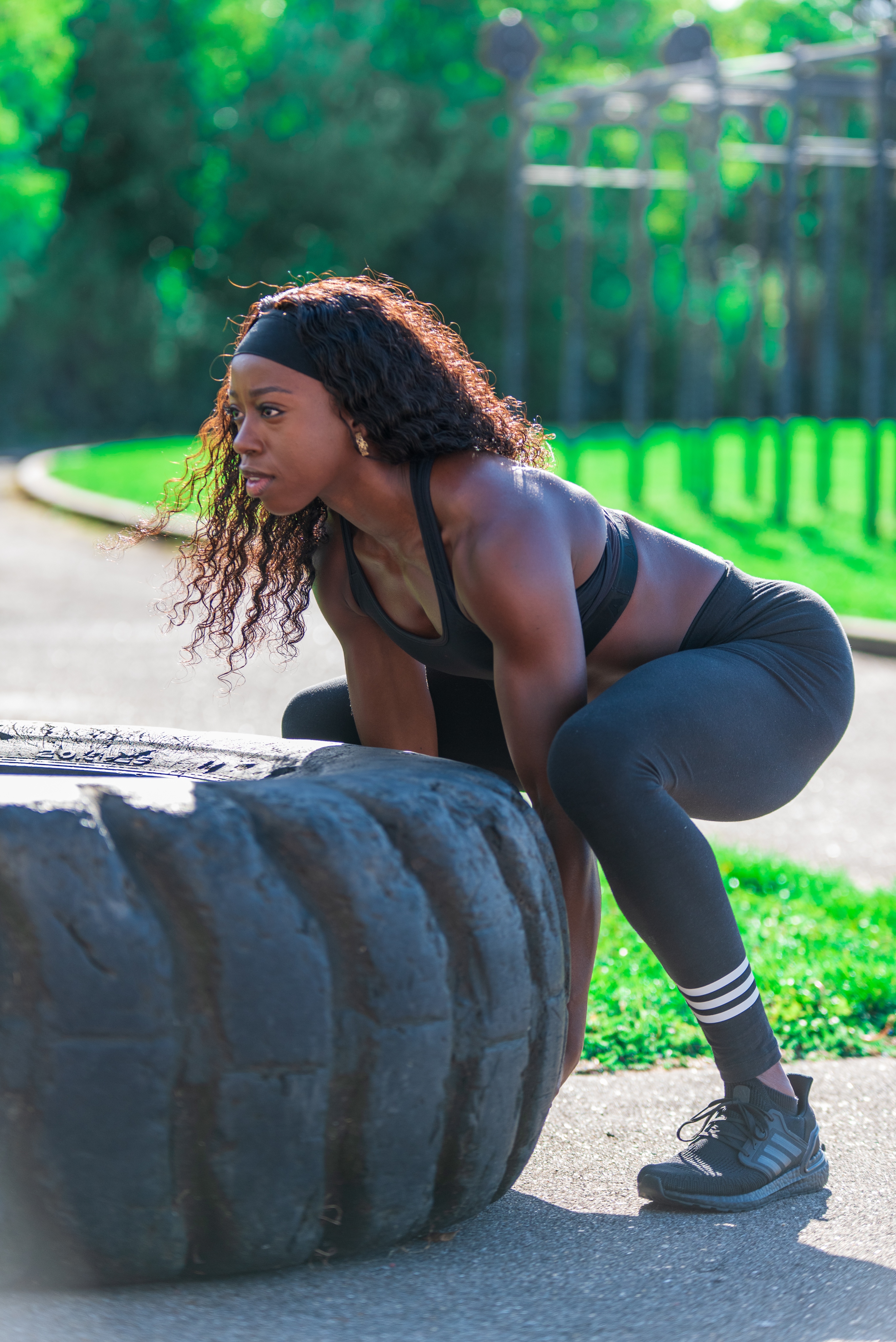
How has religion helped you?
I feel like as humans, we always try to fix everything ourselves, trying to find an answer. By having religion it allows me to take a step back, clear my mind and put it towards the Lord. It doesn't mean that I'm just going to sit at home, and put my feet up! There's a large majority of athletes that have their religions and we don't see God as a genie that grants wishes, because we'd all be getting first place! But also it helps understand if we don’t win that it’s not our time right now. Everybody's journey is different. Sometimes we can’t see the full plan ourselves but it helps me be present in the moment.
What was the biggest challenge leading up to Rio 2016?
About a month before I pulled up in the 100 metre final of the European Championships with cramp all over my body, and then, of course, the relay had to continue the next day. I had already just made the Olympic team but then there was that personal fear, are they now going to take me off the team? Did they see me as a liability? Do they not have as much trust in me that my body is not going to do the same thing, come to the Olympics? It definitely wasn't smooth sailing to get into the point of being on that starting line in the final. It was definitely a lot building up to it.
What’s your musical motivation?
I love Beyonce! I went to see her in London recently and it was incredible! It was everything that I needed it to be, and so much more. I was seeing royalty that day, so I had to get dressed up and make an effort. This is the second time I’ve seen her now and at this point she just needs to call me her friend! That was just one of those moments where I really felt like I wanted to enjoy a little bit of life. I wanted to have a little bit of fun with a couple of my really close friends, singing all night long - wearing comfortable shoes! I had to protect my feet, there's still business that needs to be handled on the track.
How have you changed as an athlete?
My mentality is different, because I know what it takes to get there, and now it's up to me to do the work, to do the training and remain focused. My approach is more mature because now I've found my voice, and especially being in a sport where a lot of my team are males. It's important as a female, and as a woman to be able to speak up. Ultimately that's provided me with the confidence to know that I'm on the right track, and also the confidence to know that I genuinely gave it everything that I had in the preparation and in the build-up, without having any kind of doubts or regret.
What are your guilty pleasures?
The Real Housewives of Atlanta, I love watching a little bit of drama! I don't want to be involved in any, but I love being on the other side of the screen. Sanya Richards-Ross [three-time Olympic gold winner] is one of the housewives. We’ve never met but I know we've been at a championship together. Once I heard that she was going to be on the cast I thought I needed to tune in and support another fellow athlete, these are things that we love to see! If I want to go absolutely crazy for trash TV I throw in a little bit of a show called Love and Hip Hop, and in terms of snacks my guilty pleasure is definitely chocolate digestive biscuits! During my period, I unapologetically binge them. Nobody can tell me that I can't have them!
What advice would you give a young Desirèe?
I would honestly go back and say that your identity is not limited to being a professional athlete, or an or an aspiring athlete. I would tell myself to find other things that make me happy, because if what is taken away, you don't want your happiness to be taken away. And so it's wanting to protect my own personal piece, protect my own personal happiness. That's what I would ultimately say to my younger self.







